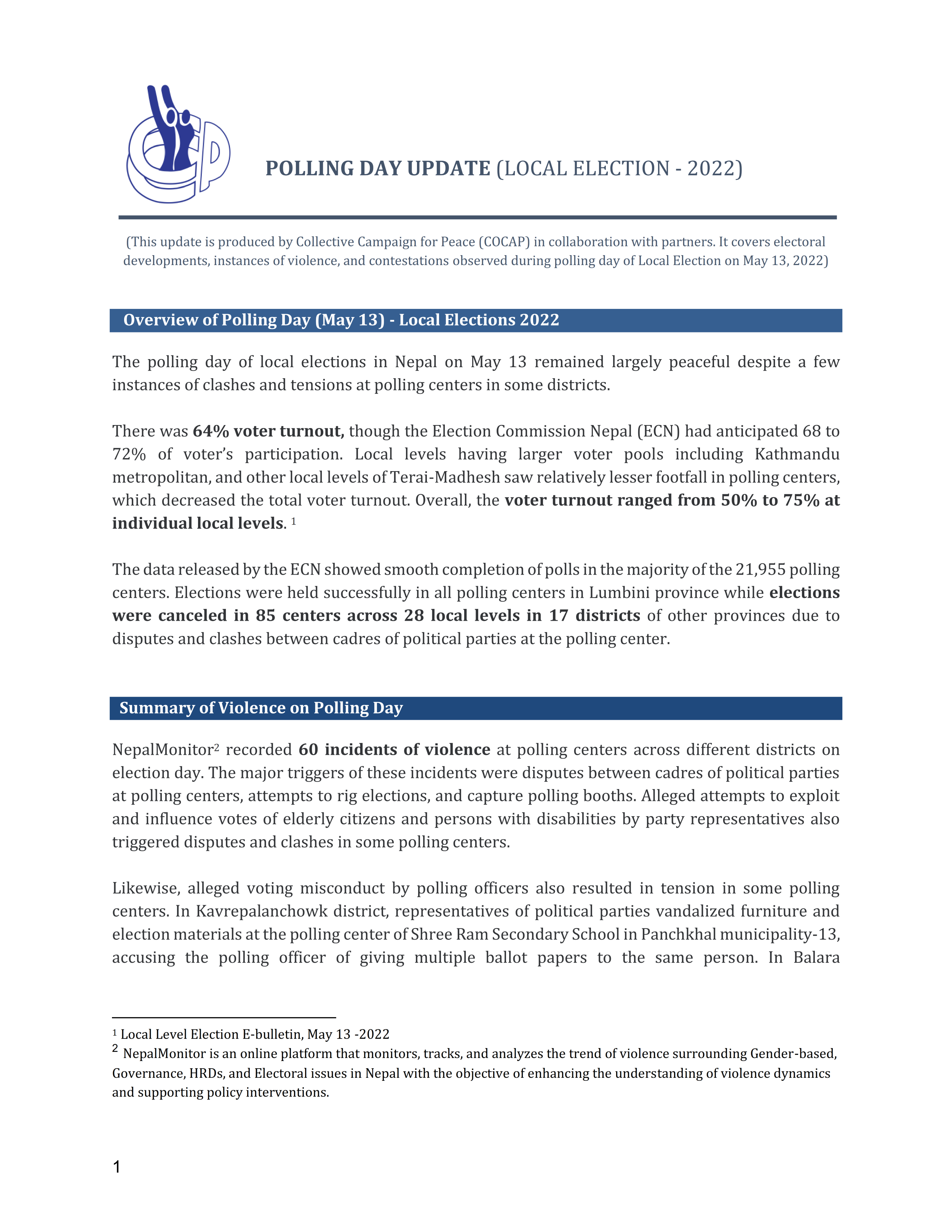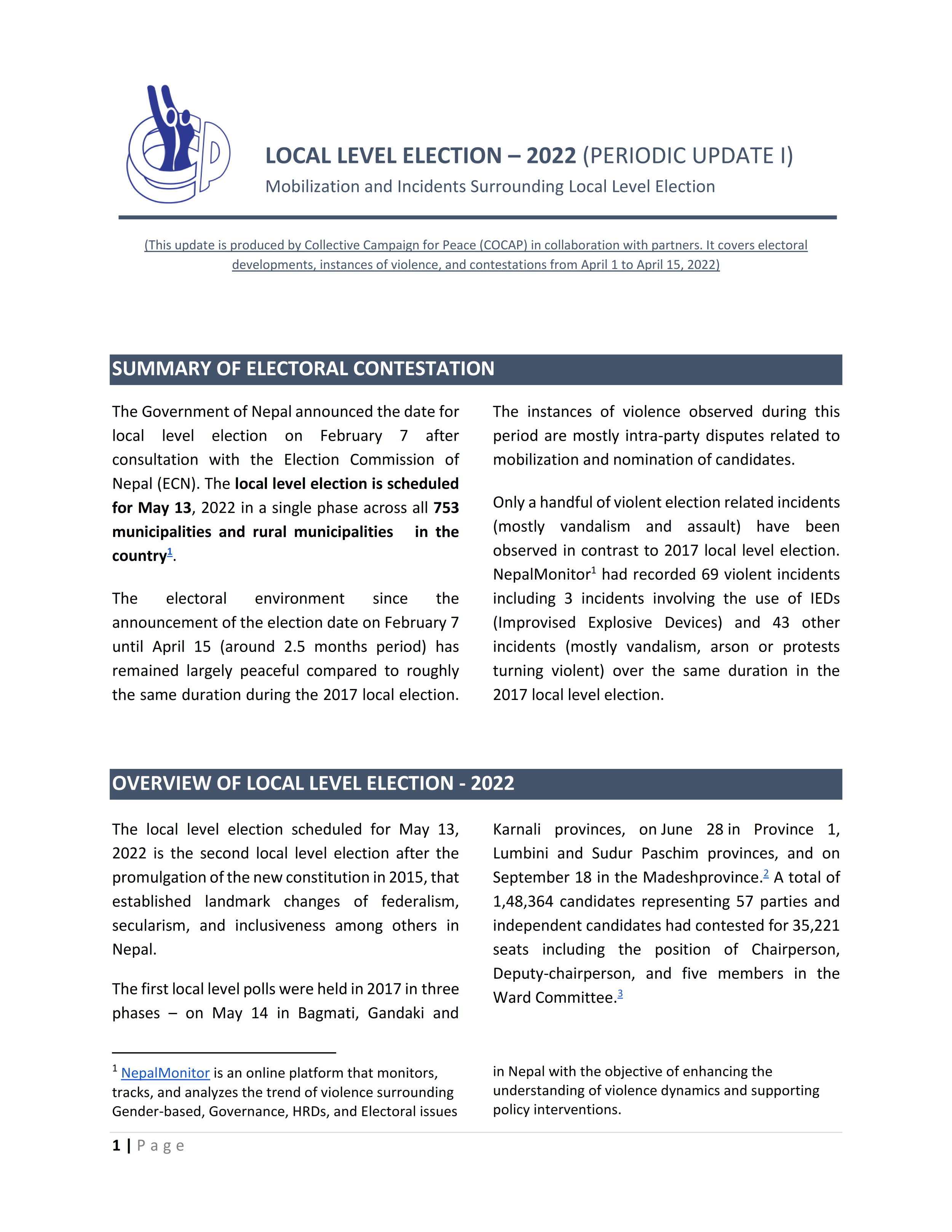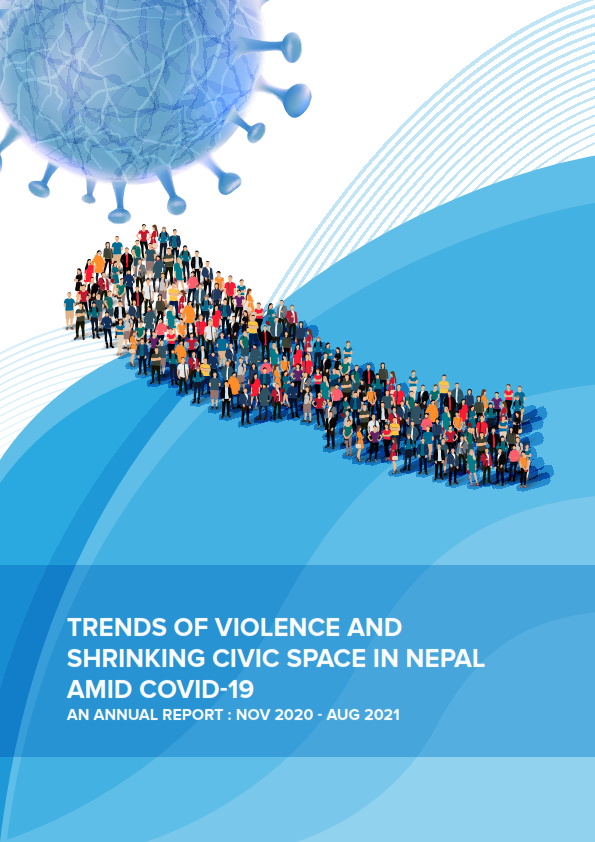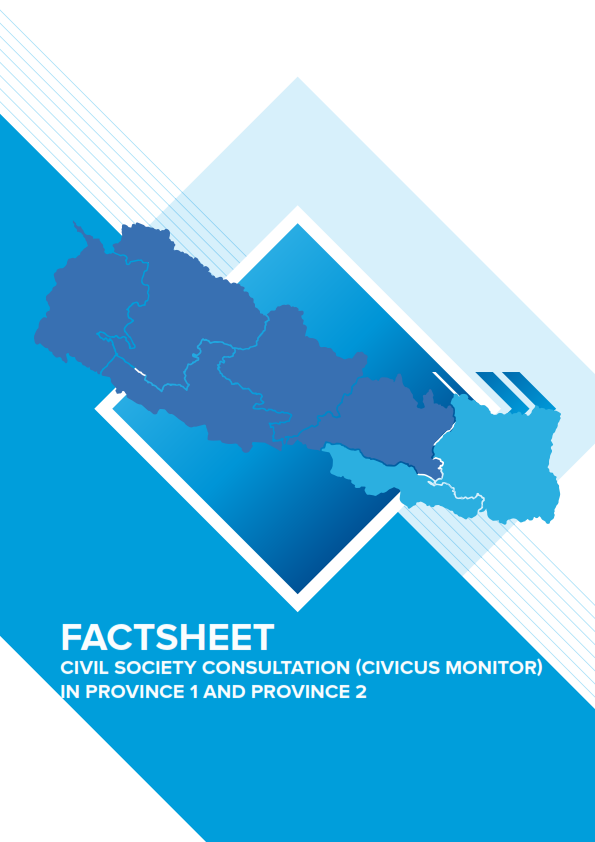Incident Reports
Prisons in East turning into ‘torture chambers’
2015-02-23
The National Human Rights Council (NHRC) has warned that prison facilities in the country are turning into “torture chambers”.
Organising a press meet in the district on Sunday following the conclusion of the six-day long field supervision of prisons in eastern-Nepal, coordinator Sudip Pathak of the national rights watchdog team said that most of the prisons that were inspected were in dire straits without adequate food, drinking water supply and other basic necessities. Expressing his serious concern over the difficult conditions at the prison in the district, Pathak appealed to the concerned authorities to address the problem at the earliest.
Over a period of six-days from February 16-22, the central investigation team of NHRC had conducted a field survey of prisons in various districts in the eastern region, including Sunsari, Dhankuta, Terahthum, and Sankhuwasabha.
While some prisons were found housing prisoners’ way beyond their capacity, others with ample space were no better as they were bound to be marred by one or the other problem. According to Pathak, the eastern-regional prison facility, which has a capacity to house 1,006 inmates, had 1,390 inmates living in unhygienic condition. Likewise, Khandbari prison in Sankhuwasabha had been holding inmates five times its capacity. Built to house 25 inmates, some 118 inmates have been crammed into the prison, Pathak said. Similarly, the prison facilities in Terahthum and Dhankuta are also no better as they have also been holding inmates thrice their original capacity.
Pathak said that the prison in Dhankuta “could give way at any time and it would be catastrophic.” He said that they had directed the prison authorities to either relocate the inmates or construct a new building within six months. The NHRC also claimed that despite housing physically challenged, mentally unstable and patients with other ailments, Dhankuta prison lacked necessary infirmary facility.
“We also found that inmates were kept in a room without windows at the facility, often in inhumane conditions, which is an outright denial of human rights,” Pathak said. Likewise, most prisons did not have any kind of facility for the elderly.
According to Pathak, there are a total of 74 prison houses in the country with a capacity to house 8,600 inmates. However, these facilities are housing inmates twice their capacity: 16,000.
The NHRC team also pointed out that the food provided to inmates were also of very low quality. Stating that 700 grams of rice and daily allowance of Rs 45 provided by the government to the inmates were too low, Pathak informed that they will suggest the government to hike the allowance to Rs 150.
Likewise, Pathak said that it was necessary to manage the open border shared with India and put in place preventive measures as it had not only given rise to criminal activities but also increased the chances of spread of disease.
National/Online Media
Related Reports
Governance / Kathmandu
Medical education concern committee protest by banging plates and whistling
September 08, 2023
Governance / Darchula
Workers padlock school citing non-receipt of wages for more than a year
Sudurpashchim, Darchula, Naugad
August 29, 2023
Governance / Sunsari
Prohibitory order issued in Dharan, tightening at entry points
Province 1, Sunsari, Dharan
August 25, 2023
Governance / Morang
Students of Eastern College in Biratnagar on protest
Province 1, Morang, Biratnagar
August 23, 2023
Human Rights / Mahottari
Woman subjected to assault and inhumane treatment on witchcraft allegation in Mahottari
August 23, 2023
Related Trend Analysis
Analysis

THE NEPAL PEACE MONITOR ANNUAL REVIEW: 2020
October 25, 2021
Human Trafficking / LGBT+ Rights / GBV / Political / Children’s Rights / Senior Citizens’ Rights / HRD Issues / Human Rights / Interpersonal Violence / Governance / Covid-19 / Civic-Space / PwD

_001.png)




